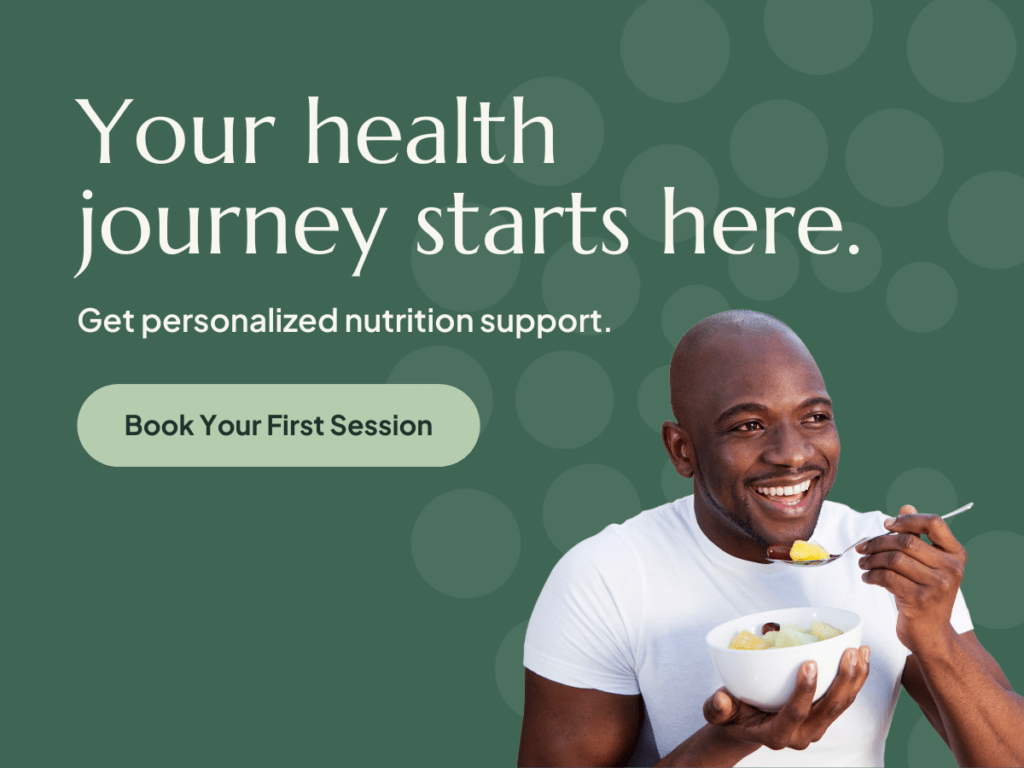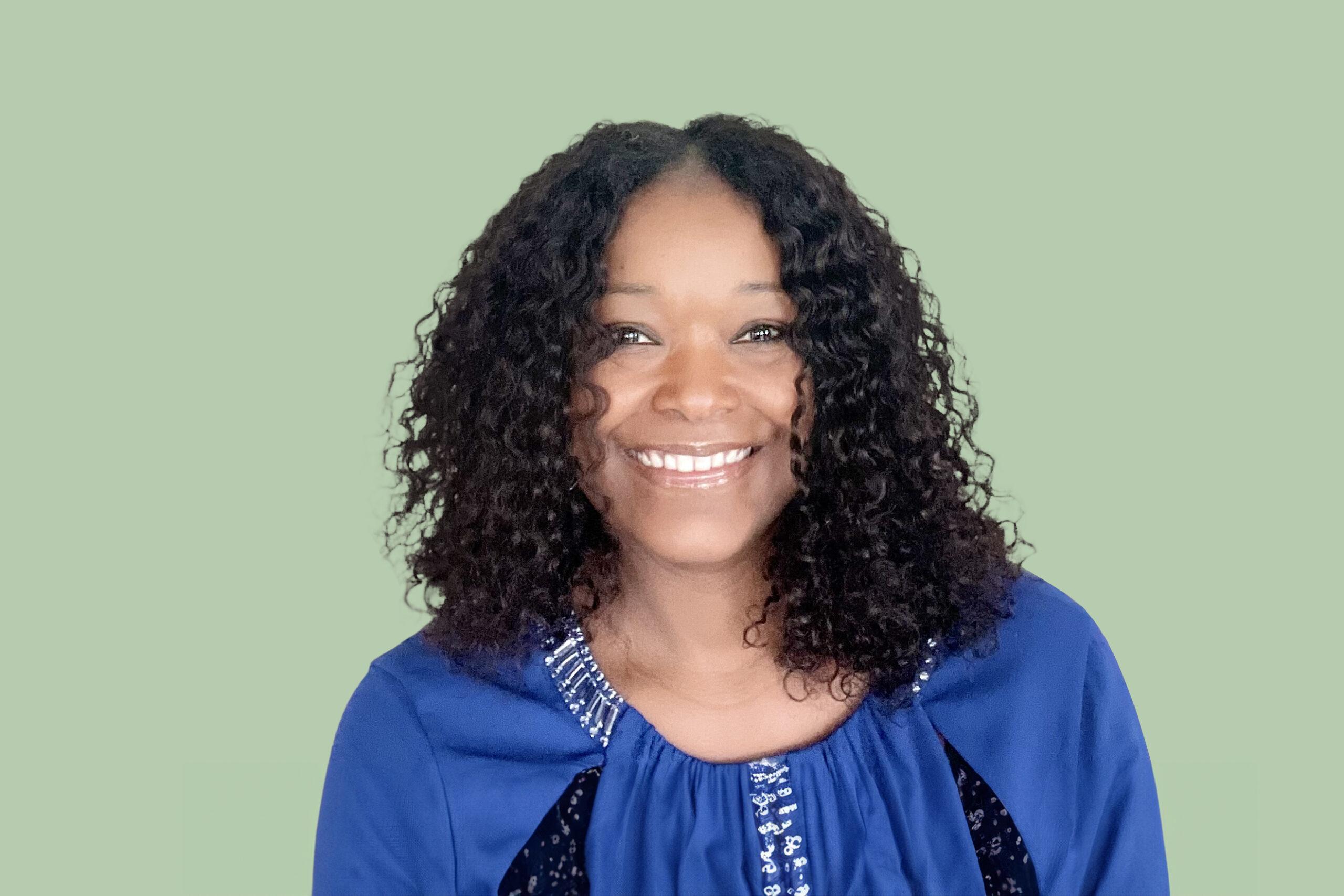As a nutritional practice founded and led by two Black woman providers, Culina Health has long understood the importance of cultural competence in healthcare. For far too long, many parts of the healthcare system have been plagued by racism and lack of diversity, leading to negative outcomes for marginalized groups. At Culina Health, we are committed to supporting all patients with care that addresses their unique health history, health goals, life circumstances, and of course, what they love to eat. In honor of Black History Month, and our support for Black patients all year long, Culina Health Registered Dietitian Tanisa Spencer, BS, RDN, joined us to discuss supporting the Black community through nutrition.
About Tanisa Spencer, BS, RDN
What brought you to the RD profession?
When embarking on my career, my first thought was to become a Registered Nurse. While working through my pre-requisite classes the first year of college, I took a Health and Wellness course and was very intrigued. I then took a Nutrition 101 course that sparked my passion—learning about how the body processes food and the food groups was fascinating to me and I wanted to share my knowledge of healthy eating with others. Soon enough, I had changed my major to Nutrition.
What informed your areas of specialization?
I decided what areas of nutrition to specialize in based on personal issues with weight management and witnessing firsthand the health disparities in my own community, along with the desire to educate and help others make healthier choices with lifestyle changes.
Nutritional Health Disparities
What are some social disparities you’ve seen in your work that impact someone’s health and nutrition?
Limited income is a significant barrier that I often see. Income status goes far beyond impacting what foods someone might be able to buy—it impacts the amount of free time they have to cook for themselves and their families or the time they have to exercise; it impacts how often they might be able to go to the doctor or what type of healthcare they receive.
Food insecurity, or lack of access to nutrient-dense food is another major barrier I see frequently. Food access is impacted by income factors above, as fresh, healthy, single-ingredient food is often more expensive than processed or pre-made meals. If you’re a busy caregiver and have limited time and funds, it’s easy to see how a fast-food meal that feeds the entire family may be more appealing in the moment than doing a big grocery shop and cooking.
How do you work with patients to address these health disparities?
I like to meet the patient where they are. There is no room for shame or judgment in healthcare, and nutrition care specifically. Any small step counts, and I commend anyone who is taking their health into their own hands! I work with my patients to take the resources that are available to them, and develop a plan that will work for their distinct needs, health goals, budget, and life circumstances. I make sure that I’m providing resources and recommendations that they are actually able to use. Because when changes like this are accessible and fit in seamlessly, then someone is more likely to sustain them as a lifestyle change.
What types of barriers or health disparities affect Black populations specifically, and how can providers address these?
The Black population often experiences bias and discrimination from healthcare providers, which can lead to misdiagnosis, poor patient-provider relationships, and a lack of trust or comfort with the health system that may prompt someone to delay or forgo medical care. Promoting diversity among healthcare providers can help address these issues and help us achieve health equity. We need Cultural Competency training for all medical providers in order to improve patient-provider interactions and provide a better standard of care to the Black community.
Additionally, the Black community experiences disproportionate rates of chronic disease, such as diabetes, cardiovascular disease and hypertension. These conditions are exacerbated by systemic racism, and related factors such as lack of resources leading to poor diet and lack of physical activity.
The Patient-Provider Relationship
What puts an RD in a unique position to support patients?
RDs are trained to understand medical conditions, assess dietary needs and provide evidence-based nutrition care based on those specific health needs. RDs are skilled in empowering patients through education—as well as addressing behavior changes and offering ongoing support. An RD is absolutely essential in promoting long-term wellbeing, and overcoming or navigating barriers to health.
How do you help patients understand and incorporate cultural foods as part of their nutrition plans?
A major fear that people often have around seeing a registered dietitian is that we will judge their food choices, and tell them they can no longer eat their favorite foods. This isn’t true! I always remind patients that all foods can fit—and foods can be important to us emotionally and culturally as well as nutritionally. I love discussing ways to reduce the calories or fat content in my patients’ favorite dishes without sacrificing flavor. For example, using smoked turkey meat in place of smoked pork when preparing collard greens or a pot of beans, to reduce the fat content but maintain the flavor of the smoked meat.
What is something unique about your approach as an RD?
My approach as a RD is to treat a patient with the same respect and care that I would want. I am a very down-to-earth person with a practical and realistic approach to counseling, which creates a comfortable relationship with a patient. I’m not “better than” them, but simply aim to be a supportive, informative resource on their health journey.

Nutrition Advice
What is a common misconception about nutrition that you want to dispel?
A common misconception about nutrition care I see often is that the focus is on cutting out specific foods to achieve health goals. Many believe that nutrition is about what not to eat. Instead, effective nutrition care is about balance and variety, consuming a diet that includes nutritious food in the form of complex carbohydrates, protein, healthy fats, fruit and vegetables to support overall health. Nutrition care should be personalized to support long-term health and not a quick-fix, restrictive diet that could lead to nutrient deficiencies and burnout.
How do you counsel patients who feel daunted by what they have to do?
I encourage patients to focus on making one small change at a time, step by step. And not to focus on what they can’t do, but instead focus on what they are able to do. We are all able to do something, and your RD can help you figure out what that is!
What’s something that providers of any identity should remember when working with Black patients or patients from other marginalized groups?
Whoever your patient is, meet them exactly where they are. Nutrition isn’t one-size-fits all, and what works for one person may not work for another. Take the time to learn more about the individual, their background, and what’s important to them. Don’t make assumptions.
What role can RDs play in making nutrition care more accessible for all?
RDs can collaborate with community organizations, food banks and schools to offer nutrition education that is tailored to special populations. Culina Health is a perfect example of making nutrition care more accessible, from our use of telehealth to make appointments more convenient, to our acceptance of most major insurance plans including Medicare.
Work With a Registered Dietitian at Culina Health
We know that having negative experiences with healthcare providers is all too common, especially among people from marginalized communities who have been impacted by structural racism. Working with a Registered Dietitian is a great way to take your healthcare into your hands, alongside a supportive professional who meets you where you are, with compassion. You can have a healthy diet that includes your favorite foods, and helps you reduce your risk of chronic conditions. Culina Health is in-network with most major insurance companies and the majority of our patients have their sessions covered by their insurance. Get matched with a Culina Health RD today.





